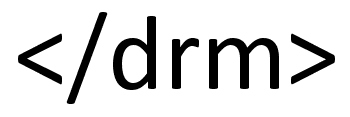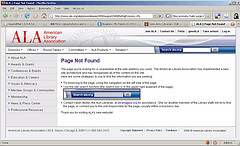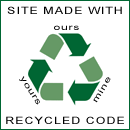What I Learned at CIL2011
March 29th, 2011 Brian Herzog I had a great time at the Computers in Libraries 2011 conference last week - I met nice and smart people, attended good sessions (read my notes), learned a lot, and hopefully helped a few people by giving a workshop with Nicole Engard.
I had a great time at the Computers in Libraries 2011 conference last week - I met nice and smart people, attended good sessions (read my notes), learned a lot, and hopefully helped a few people by giving a workshop with Nicole Engard.
After a week of digesting, I wanted to share the three main points I took away from the conference. Here they are, in no particular order:
1. Simplify your website
This was mentioned in multiple sessions (also good stuff here), and sadly it bears repeating - library websites should not be junk drawers, hanging on to everything everything everything just in case some might want it. They might, but it makes your site so cluttered that they'll never find it anyway.
Another related principle is Aaron Schmidt's idea gradual redesign - instead of just one day - boom - entirely changing everything, do things gradually. Consolidate content, reorganize navigation, etc, in stages - it's easier for users to adapt to a few things at a time, and staff get to see continual progress, rather than having to wait until the entire project is done. I want start implementing this approach for our redesign project.
2. Libraries are about the experience
You know how you hear something and read something again and again, and then you hear it one more time and you finally understand what it means? That happened to me at CiL with the idea of User Experience (UX). Again, Aaron Schmidt has been out in front on this for awhile, but I only every thought of it in the context of using websites.
What dawned on me is that, in the library, the patron experience is everything - to us and to them. People don't use libraries because they like the idea of libraries - people use libraries for the experience they can find there. Whether it is curling up a print book to experience a story, or attending a lecture, or a storytime, or using our free internet access, or idly chatting with the circ staff about new books, what people are after is the experience.
Perhaps this isn't too novel unless you think of it this way: libraries aren't about books, or information, or programming, or even community - libraries are about experience. Patrons can experience our community space or our content, but it's their emotional perception that is key. Of course, different patrons experience different services in different ways, but it's our job to make sure they are good experiences.
3. The only good DRM is no DRM
When I was babbling about the HarperCollins fiasco, I focused mostly on their ridiculous policy approach, and didn't talk much about DRM itself. It's the technology that makes self-destructing ebooks possible, sure, but I considered it just a tool - a misused one, but not the real root of the problem.
But the Librarian in Black's "dead technologies" talk changed my mind. I wish I recorded her to share here - everyone should see it. DRM is the main problem with ebooks - and not even in a technological way. The problem is that publishers who are afraid to let go of old models insist on using DRM to cripple the potential of ebooks. I love analogies, and here's a good one: does your refrigerator limit the kind of ice cream you can buy, or get rid of it after a certain amount of time? No, so why would we allow it with ebooks?
We should not stand to be treated like criminals - that's what DRM does. Any effective and robust ebook model cannot implement DRM. I am not remotely as passionate or as eloquent as Sarah, but now I'm just as motivated.


